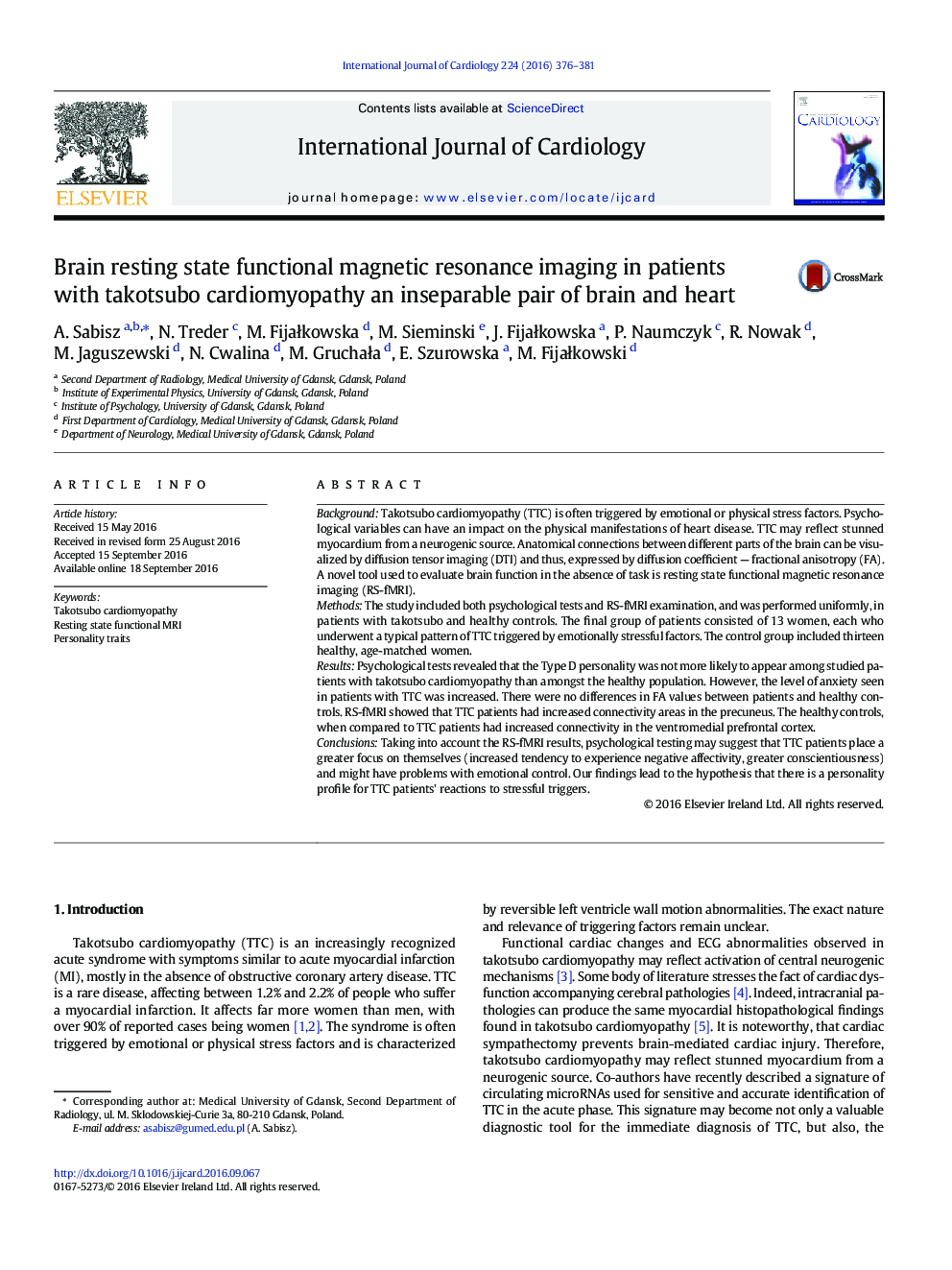| کد مقاله | کد نشریه | سال انتشار | مقاله انگلیسی | نسخه تمام متن |
|---|---|---|---|---|
| 5962448 | 1576124 | 2016 | 6 صفحه PDF | دانلود رایگان |
BackgroundTakotsubo cardiomyopathy (TTC) is often triggered by emotional or physical stress factors. Psychological variables can have an impact on the physical manifestations of heart disease. TTC may reflect stunned myocardium from a neurogenic source. Anatomical connections between different parts of the brain can be visualized by diffusion tensor imaging (DTI) and thus, expressed by diffusion coefficient - fractional anisotropy (FA). A novel tool used to evaluate brain function in the absence of task is resting state functional magnetic resonance imaging (RS-fMRI).MethodsThe study included both psychological tests and RS-fMRI examination, and was performed uniformly, in patients with takotsubo and healthy controls. The final group of patients consisted of 13 women, each who underwent a typical pattern of TTC triggered by emotionally stressful factors. The control group included thirteen healthy, age-matched women.ResultsPsychological tests revealed that the Type D personality was not more likely to appear among studied patients with takotsubo cardiomyopathy than amongst the healthy population. However, the level of anxiety seen in patients with TTC was increased. There were no differences in FA values between patients and healthy controls. RS-fMRI showed that TTC patients had increased connectivity areas in the precuneus. The healthy controls, when compared to TTC patients had increased connectivity in the ventromedial prefrontal cortex.ConclusionsTaking into account the RS-fMRI results, psychological testing may suggest that TTC patients place a greater focus on themselves (increased tendency to experience negative affectivity, greater conscientiousness) and might have problems with emotional control. Our findings lead to the hypothesis that there is a personality profile for TTC patients' reactions to stressful triggers.
Journal: International Journal of Cardiology - Volume 224, 1 December 2016, Pages 376-381
